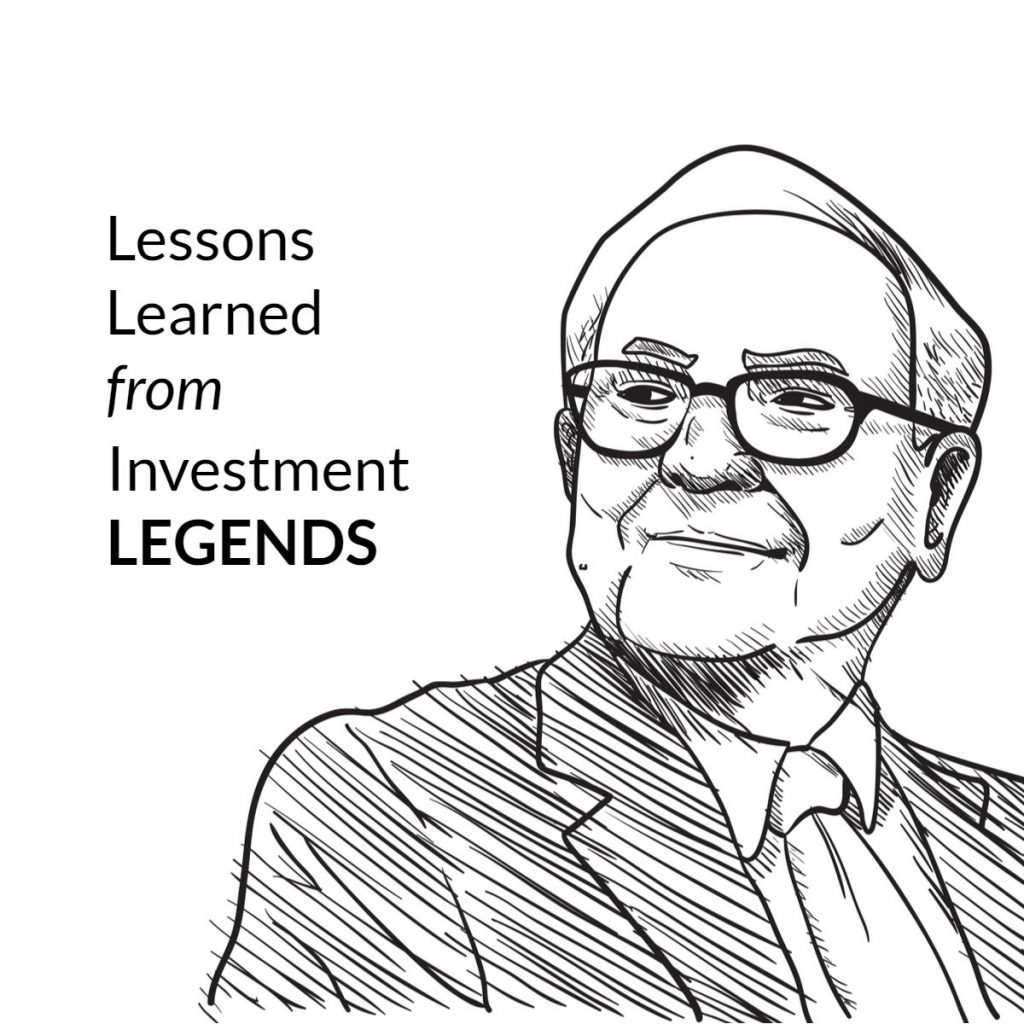Lessons Learned from Investment Legends
“October: This is one of the peculiarly dangerous months to speculate in stocks. The others are July, January, September, April, November, May, March, June, December, August and February.”
― Mark Twain
Speculating in stocks is always a dangerous game, while investing is a totally different ball game!!
Warren Buffett:
Warren Buffett is regarded as one of the most successful investors of all time. He started investing with about $174,000 in personal savings and has grown that initial amount to more than 50 billion dollars.
Warren Buffett said, “Do not save what is left after spending; instead spend what is left after saving.” This rather simple concept; save before you spend; is one however that many will never attempt. As simple as the concept is, the practice seems daunting to say the very least. Many people feel that they have trouble making ends meet as it is; how can they possibly live on less. Once you put this into practice you will find that because the saving comes right off the top, you learn to live on what is left. A savings rate of ten percent of your gross wage is a suggested starting point – and yes, it is something that you can do.
“There is nothing wrong with a ‘know nothing’ investor who realizes it. The problem is when you are a ‘know nothing’ investor but you think you know something. Having first rate people on the team is important.” So, in a nutshell Warren Buffett’s advice is to first – save some money to invest and second – make sure that you hire knowledgeable, reliable, trustworthy qualified people to be part of your team.
Benjamin Graham:
Benjamin Graham is best known for being a teacher and mentor to Warren Buffett.
Benjamin Graham said, “In the short run, the market is a voting machine. But in the long run, it is a weighing machine.” What Graham meant by this statement is that there are times when stocks will go on a run with no rational basis to back up the increased value and conversely stocks will often be substantially below their intrinsic value with no real basis to back that up either. That is when it pays to have someone with experience, knowledge, and a good reputation on your team because eventually, over time, a stock will appreciate based on the merits of the underlying company. “Investors should purchase stocks like they purchase groceries; not like they purchase perfume.” (Benjamin Graham)
John Templeton:
John Templeton is the creator of the modern mutual fund. He had a firm belief that if you buy a strong company that is undervalued, it will eventually be recognized for its true value and you will be rewarded accordingly.
He said that the four most expensive words in the English language were, “This time it’s different.” This statement has been borne out over and over on both sides of the equation. The market doesn’t go up forever and conversely the market doesn’t go down forever. The market, based on its current fundamentals at the time, often goes higher than it should and conversely, the market based on fear and anxiety, will at times go down far lower than any fundamentals would justify. History however has shown that the general direction of the market is up. Templeton is famous for his investing prowess immediately after the stock market crash of ’87. While many others were selling; he was busy loading up on distressed, undervalued stocks that shortly after reverted back to their fundamental value.
Peter Lynch:
Peter Lynch is living proof that investment knowledge can have a huge impact on your future wealth. He is best known for managing a fund for 13 years that he grew from $20 million to $14 billion for an average annual return of 29 percent. He is a shining example of how good management and advice is very important.
“I think you have to learn that there’s a company behind every stock and there’s only one reason why stocks go up. Companies go from doing poorly to doing well or small companies grow to large companies (Peter Lynch) Peter Lynch also made reference to when the time to invest is, when he said, “I have found that when the market’s going down and you buy funds wisely, at some point in the future, you will be happy. You won’t get there by reading. Now is the time to buy.”
So, the common theme of these four investment legends is that you find a way to save money to invest, find an advisor that you can trust (based on their reputation), invest for the long term, and remember the overall direction of the market over time is up.
When considering an advisor, you should consider the following:
- What is their reputation in the investment community?
- What do their current clients have to say about them?
- Do they have the appropriate knowledge and temperament to guide you?
- Are they ethical, reliable, and trustworthy?
- Are they a certified financial planner as well as an investment advisor?
An investment advisor, that is not limited to just proprietary mutual funds but is licensed to invest in stocks, bonds, and mutual funds and is also a certified financial planner can be a huge bonus to you when it comes to growing your wealth. Make sure that you feel comfortable with them on both a personal level and a business level.
“Every decade or so, dark clouds will fill the economic skies, and they will briefly rain gold.” (Warren Buffett)
“When everything seems to be going against you, remember that the airplane takes off against the wind, not with it. (Henry Ford)

